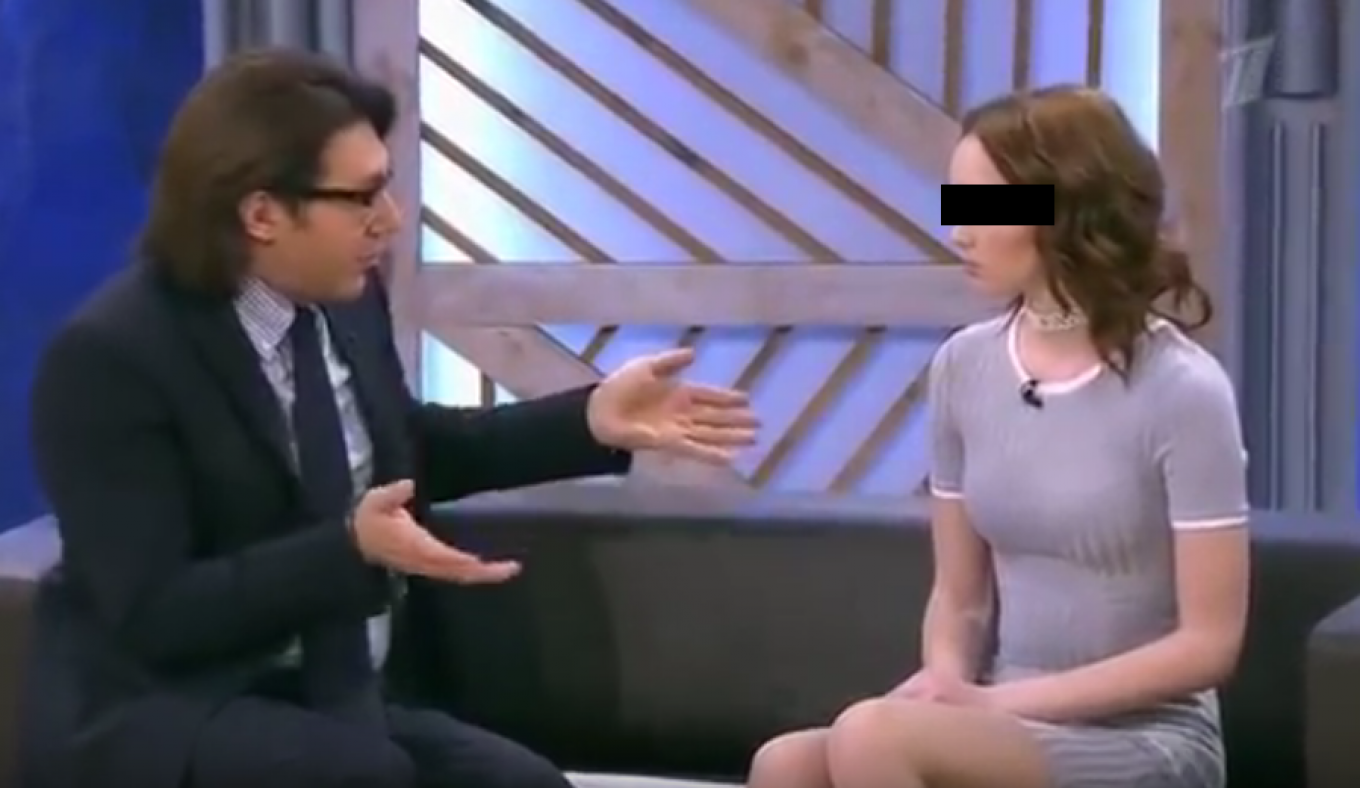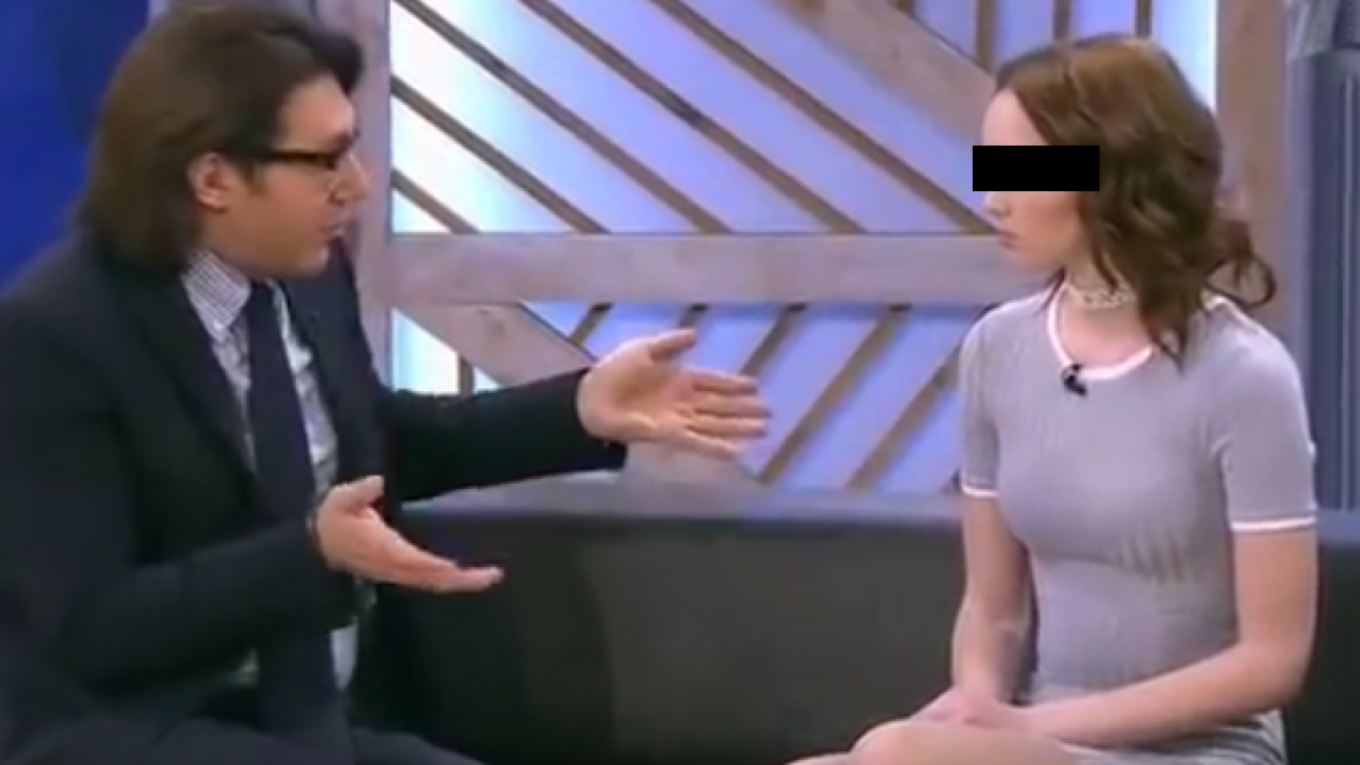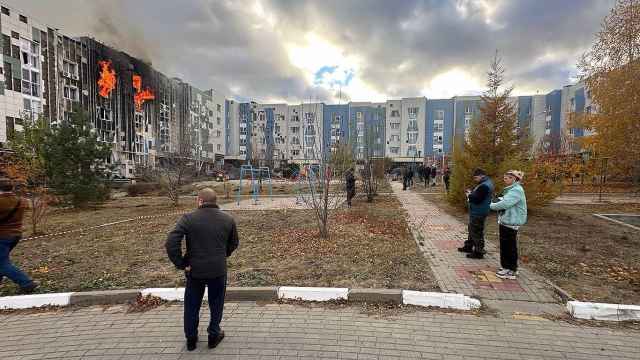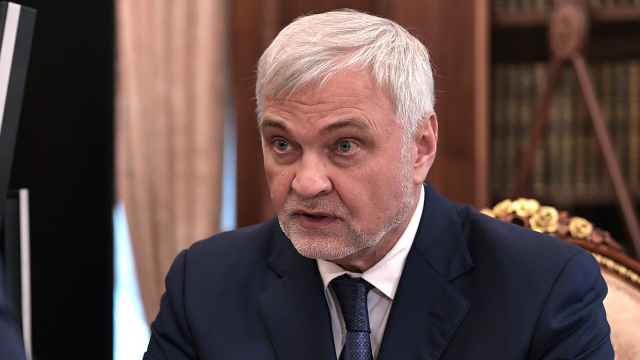When Burger King is parodying an underage rape victim to sell hamburgers, you know something is wrong.
But that’s what happened last month when the fast food chain released an online ad for a discount on Big King burgers that featured the image of Diana S, a 17-year-old rape victim.
Soon the company had deleted the post, but the message was clear: Diana, who spoke out about her rape at the hands of a 21-year-old man on the Russian evening talk show Pust Govoryat (Let Them Talk), had become an internet meme and — to many — the villain in the rape case that electrified Russia.
On the talk show, commentators blamed Diana for provoking sexual assault. On Youtube, video bloggers denounced her as a calculating libertine who sent a young man to prison and ruined his life. On social media, Russians turned the image of Diana using her thumb and forefinger to demonstrate how little she drank the night she was raped into a meme. That meme eventually found its way into the Burger King ad, where the hand gesture was used to demonstrate how long the discount would last: “Not very long.”
Diana's transformation from ordinary victim into media celebrity and public enemy has raised serious questions about how Russia relates to sexual assault and its victims. Advocates for assault victims suggest the saga says a lot about public attitudes.
Russian society supports the myth that the victim is responsible for sexual assault, says Nadezhda Zamotaeva, executive director of the Sisters sexual assault recovery center. “Sadly, this tells us that violence is habitual, unconscious, and permissible for members of our society,” she told The Moscow Times.
What Happened
On March 31, 2016, a group of young men rented a house on the edge of Ulyanovsk, a town in central Russia, to celebrate a friend’s 20th birthday. They purchased beer, vodka, and reportedly spice, a narcotic for smoking. They decided to invite girls.
Diana, then 16, got an invitation to the party from a friend. At the birthday celebration, Diana drank vodka and made the acquaintance of Sergei Semyonov, a 21-year-old student at the local agricultural academy. Eventually, Diana and Semyonov ended up alone in a room in the house. There, Diana told the police, Semyonov forced himself on her and beat and raped her.
The case went to court and, in December 2016, the judge ruled that Semyonov knew Diana was underage and understood that she did not want to have sex with him. Semyonov was sentenced to eight years in a prison colony for “rape” and “violent acts of a sexual nature.” An appellate court later reduced his sentence to three years and three months.
Even before Diana's television debut, the case had provoked controversy. After the first ruling, groups in support of both Diana and Semyonov appeared on the Russian Vkontakte social network. The larger group took Semyonov’s side. Its 17,000 members wanted to draw attention to “an unjust court,” one of the group’s founders told the Meduza news website.
People’s Court
To help their son, Semyonov’s family approached state-owned Channel One’s Pust Govoryat, an evening talk show known for its own brand of lurid melodrama. Beyond that, the show serves as a place where outraged Russians bring their grievances to the public. Sergei Semyonov’s case was exactly the kind of story that Pust Govoryat was looking for.
The show, broadcast on Jan. 31, 2017, brought Semyonov’s mother and sister face-to-face with Diana and her father. But it was hardly a fair match. Almost all the panelists — often models and bloggers — and most of the audience were clearly on the side of Semyonov. Even the host Andrei Malakhov presented the subject of the broadcast as, “Why intimacy with Diana destroyed [Sergei’s] future.”
During the broadcast, Diana's coiffed hair and makeup attracted particular attention from the public. Many viewers saw her appearance and the variety of emotions she expressed during the show as proof of her dishonesty. She did not look like a victim of sexual assault, they felt. Diana contends that the television studio did her hair and makeup and chose her outfit.
The panelists aggressively interrogated Diana about how much vodka she drank and what she expected when she went into the room alone with Semyonov. Malakhov also played a video from one of Diana's social media accounts — discovered by Semyonov’s mother — that showed her riding drunk in the passenger seat of a car with some visibly older men and singing along to a song about sex and drugs.
This demonstrates “how much the myth that women provoke sexual violence exists in the minds of Russians,” says Andrei Sinelnikov, deputy director of the Anna Center, an NGO helping victims of domestic violence.
The Pust Govoryat broadcast also revealed several new details about the case. On air, Diana explained that another young man had also raped her that night, but because she was not fully conscious at the time and could not actively resist, the police did not register it as a crime.
Additionally, Semyonov’s sister revealed that Diana and her family had previously pressed criminal charges against her ex-boyfriend for having sex with a minor. Diana’s lawyer confirmed this story to the Meduza news site.

Not a New Story
Diana's story proved so scandalous and popular that Pust Govoryat recorded four more broadcasts about her in the following months — and more appear to be planned. In subsequent shows, Malakhov and some members of the panel were more sympathetic to her. But this hardly changed public attitudes.
Internet users largely continue to take the side of Semyonov. After the initial broadcast, members of Diana’s family received threats online. Several times, unidentified vandals slashed the tires of the family car. Most alarmingly, Diana’s mother was attacked on the street. Eventually, the family had to leave their hometown.
Video bloggers continue to debate Diana’s case — likely both out of sincere interest and a desire to drive traffic by discussing a popular topic. In a March 6 video, blogger Konstantin Prekrashev declared, “I won’t f---ing stop making videos about Diana as long as the white man remains the most oppressed person on Earth and women take advantage of the fact that they have a c--- between their legs.” It was his fourth video about Diana.
Despite the extended public interest, Diana’s case is nothing new. Based upon Interior Ministry statistics, the Anna Center’s Sinelnikov estimates that around 4,000 rapes are registered each year. But this figure “only scratches the surface,” he says. What’s more, official statistics only cover rape “in the traditional form.” Anal rape and other forms of sexual assault are only considered “crimes of a sexual character,” he says.
Even the media circus surrounding Diana is not new. In 2016, two students at a Moscow university were sent to prison for raping their classmate Irina Sychyova at a party. Many other students took the side of the two accused — despite the fact that, while one raped Sychyova, the other recorded the assault on a mobile phone camera and published it online. Sychyova also appeared on talk shows and faced mockery online. In fact, Pust Govoryat billed Diana as a “new Irina Sychyova.”
Three years earlier, Tatyana Andreeva, a 20-year-old powerlifting champion, was sentenced to seven years in prison for killing a 26-year-old friend who was allegedly trying to rape her in a hotel. Before being sent to prison, Andreeva also appeared on Pust Govoryat, where panelists questioned why a young woman would go to a hotel at night with a man.
With its scandalous tone and provocative approach, Pust Govoryat can make almost any story appear unseemly — especially in the case of Diana, where her appearances have made her something of a media celebrity.
In fact, the fifth broadcast of Pust Govoryat largely focused on Diana’s newfound celebrity status. Since first appearing on television, she has created her own video blog. She now says she wants to establish an anonymous group to help female victims of violence.
But the negative response to Diana and other rape victims reflects serious tensions in Russian society, say experts.
It is particularly easy for the public to miss the suffering of a rape victim and to sympathize with a young man who has been imprisoned for rape in Russia, where prisons remain very grim, says Dr. Janet Johnson, an associate professor of political science at Brooklyn College and an expert on gender issues in Russia. After the Soviet period, many Russians are “reticent to want the state to intervene too strongly” in people's lives — even in cases of rape, she says.
It helps little that the government is now promoting conservative values and traditional gender roles. Despite this, a new anti-sexual assault movement is growing in some segments of Russian society, Johnson says. Last year, the online hashtag #IAmNotAfraidToSay helped draw attention to the problem of sexual violence in Russia and has shown that women here will not stay silent.
Sinelnikov, from the Anna Center, agrees that the subject of violence against women is now receiving more attention in Russia.
But until attitudes significantly change, the public will continue to miss the essential facts of a story like Diana's, says Zamotaeva of the Sisters center.
“A crime was committed! A verdict was delivered! The criminal is serving his sentence!” she wrote to The Moscow Times. “Why does society not ‘see’ or ‘hear’ the victim?”
A Message from The Moscow Times:
Dear readers,
We are facing unprecedented challenges. Russia's Prosecutor General's Office has designated The Moscow Times as an "undesirable" organization, criminalizing our work and putting our staff at risk of prosecution. This follows our earlier unjust labeling as a "foreign agent."
These actions are direct attempts to silence independent journalism in Russia. The authorities claim our work "discredits the decisions of the Russian leadership." We see things differently: we strive to provide accurate, unbiased reporting on Russia.
We, the journalists of The Moscow Times, refuse to be silenced. But to continue our work, we need your help.
Your support, no matter how small, makes a world of difference. If you can, please support us monthly starting from just $2. It's quick to set up, and every contribution makes a significant impact.
By supporting The Moscow Times, you're defending open, independent journalism in the face of repression. Thank you for standing with us.
Remind me later.






